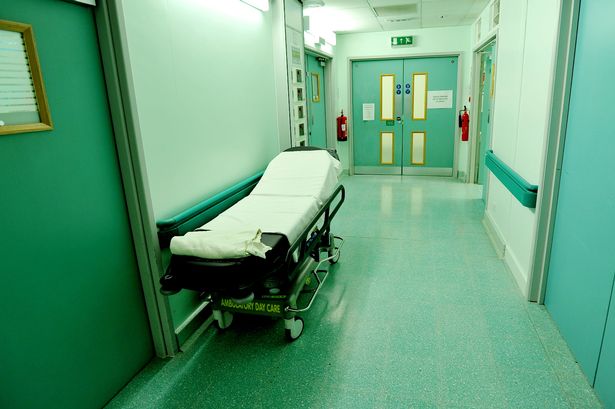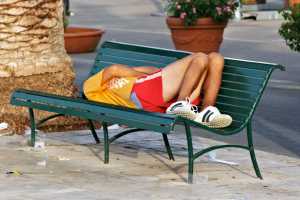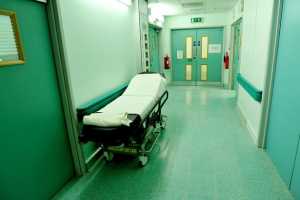
Home is where the heart is
A thriving economy and the birth of the Celtic Tiger saw us shed our Third World roots and become, if not quite affluent, then certainly well-to-do. We began to live longer, started looking after ourselves, learned of strange foreign potions with life-giving properties, probiotics, fruit, that kinda stuff.
Word spread, others came, lured by the promise of milk, honey and cider, and before we knew it, there were five million of us, living in a country not fit for purpose.
Who could have predicted such a thing? Not I, that’s for sure. But plenty could. Plenty probably did. They would have seen the year-on-year increase, watched the numbers rise and warned that one day, in the not too distant future, we would have a problem.
That day is now.
The bursting of our bubble brought with it a litany of crises; unemployment, emigration, homelessness, depression, but none are as far-reaching, as critical, as that which threatens to envelop our hospitals.
When I began working at the Limerick Post eight months ago, one of the first things I grew accustomed to was the weekly ‘trolley figures’. Every week, usually on a Monday or a Tuesday, they were updated, and every week we discussed how to report them.
Some weeks, the figures weren’t so severe, they had gone down, or risen by just a couple, hardly newsworthy at all. Other times they rose, UHL taking top spot more often than not, and we reported on it; front page leads, page two, further in, depending on the numbers.
This wasn’t like other stories; it didn’t break, peak and disappear, it remained constant, an accepted part of the weekly news. It struck me as odd, that it could continue this way, that months could pass without any real signs of improvement.
I spoke to one of my colleagues, asked her how long she’d been reporting on these figures, how long she’d been beating this particular drum. Her face clouded over, years of futile copy passing before her eyes, “Ten, fifteen, oh wait…at least a decade. More maybe, I’m not sure.”
She had begun reporting on these figures when our population started to rise, when our average age rose in tandem, when our hospitals first began to struggle with the increase in patients which inevitably accompanies a rise in population.
And still she reports, all these years later, the situation now worse than its ever been. She may not have a great head for figures but I’d wager that she, along with hundreds of other journalists throughout the country, could have quite easily predicted this descent into Armageddon, probably described it in great depth if asked to.
Therefore, presuming that at least a handful of those resident within Dáil Eireann are in possession of their faculties, you would hope that some of our public representatives could have seen it coming too. That they would have consulted the rather complex mathematical equation involving more people, outdated infrastructure and fewer nurses, and thought, “this could get ugly.”

The galling thing is that they did, they knew this was coming, the same way they knew any number of damaging crises were winging their way towards us, the unsuspecting public.
That they chose to ignore it is not so much a summation of the people who run this country, but more a damning indictment of our political system, a system where the sole motivation of those in power is to stay in power while the State they claim to represent is left to fester.
Simon Harris’s primary concern is not turning trolleys into beds, it’s on furthering his own career, on ensuring that he emerges from his time as Health Minister relatively unscathed. Witness his tweet regarding the trolley crisis on Friday night last: “Trolley figure provided to me at 8pm this evening is 104,” wrote the Minister. “Thanks to staff who worked so hard this week (& every day) and through the weekend.”
To a casual observer, it would appear that Harris had indeed turned trolleys into beds, used his significant political clout to magically free up hundreds of hitherto unavailable spaces. But he didn’t do that, or anything like it. Instead he waited until a time when the numbers on trolleys tends to be at its lowest, at the tail end of the week, and inferred that he had performed some sort of minor miracle.
Are those the actions of a man with the nations best interests at heart? The actions of a man who truly wants to resolve this situation, no matter how long it takes? No. Harris is, like most of his contemporaries, a careerist. His focus is, and always will be, on appeasing his constituents, on ensuring that those who came out and voted for him last time will do so again next time around.
He’d like to alleviate the trolley crisis, and he’d like to ensure his tenure as Minister for Health brings about real change and reform, but he knows that ultimately, it doesn’t really matter whether he does or not.
What matters to Harris are the people of Wicklow and East Carlow, it is they who will decide his immediate fate. Should he attend enough clinics, open enough stores and kiss enough babies, he will remain in situ for at least as long as his party remain in power.
Therein lies the real reason why our hospitals are full to overcrowding, and indeed, why there’s not enough houses to go round, we have an electoral system that is no longer fit for purpose, one that rewards local, small-scale back-rubbing over broader, strategic thinking.
Neither Simon Harris, nor any other Minister, can afford to implement long-term plans at national level, not when they’re fending off members of their own party in their own constituencies. In our arcane, insane political sphere, solving the trolley crisis and potentially saving the lives of thousands could, in effect, cost Harris his job.
So instead of dealing with this crisis, instead of providing a safe and clean environment for the most vulnerable people in this country, for our friends, family and children, our Government will just muddle on as best it can. Oh yes, it will make all the right noises, promise us that brighter days are ahead, that this simply cannot go on and they care more than we could ever know.
And all the while, as they talk directly into the camera, speak in that assertive, decisive tone which makes us want to believe in them despite our misgivings, they’ll be thinking of that funeral they’ve got to make an appearance at. The one back home, the one up in that little village just outside the town near where they grew up. Because sure didn’t your man die, the lad of the Costigans; and there’s a fine crowd of them in it, a fine crowd altogether.
Better safe than sorry

Credit where it’s due, you tried your darnedest, worked up quite a sweat, but you could hardly be expected to keep that craic up for any longer than a week. No, it’s back to Maltesers for breakfast and getting out of breath on the walk to the car for now, just the way you like it.
Those around you have probably been shooting disapproving looks in your direction ever since you declared, on day four, that you had a sore toe and that maybe “exercise wasn’t for you”. But you did the right thing, there’s no need to strain yourself, this getting in shape thing is incredibly dangerous.
Look at the case of the 47 year-old woman in England who, having partaken in a New Year’s detox diet involving excessive fluids and various herbal remedies, was admitted to hospital. Suffering from confusion the woman later collapsed and had a seizure, doctors citing the lack of sodium in her system as the reason for her illness.
Now I have no idea where we get sodium from, but I doubt we get it from running round the streets dressed in spandex. So, sit back down, open up that last box of Roses and take it easy, it’s for your own good.



